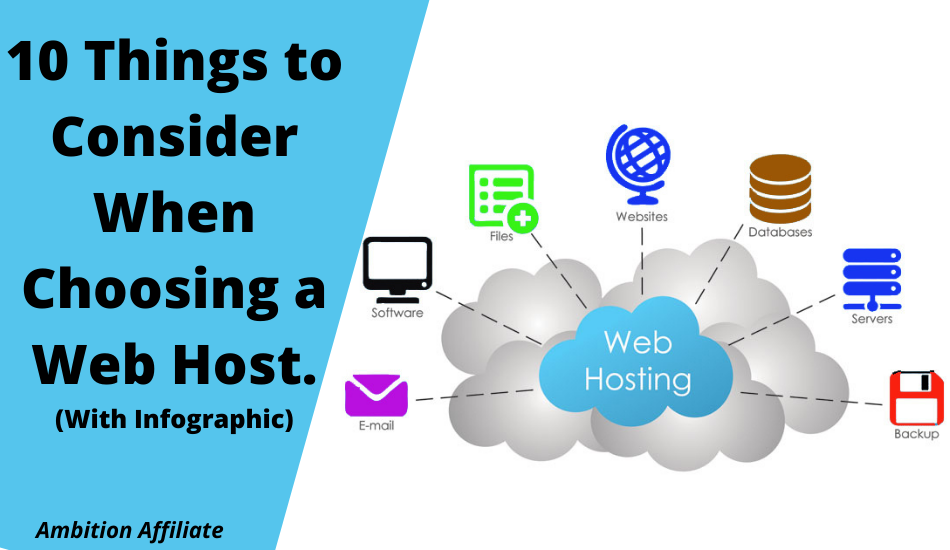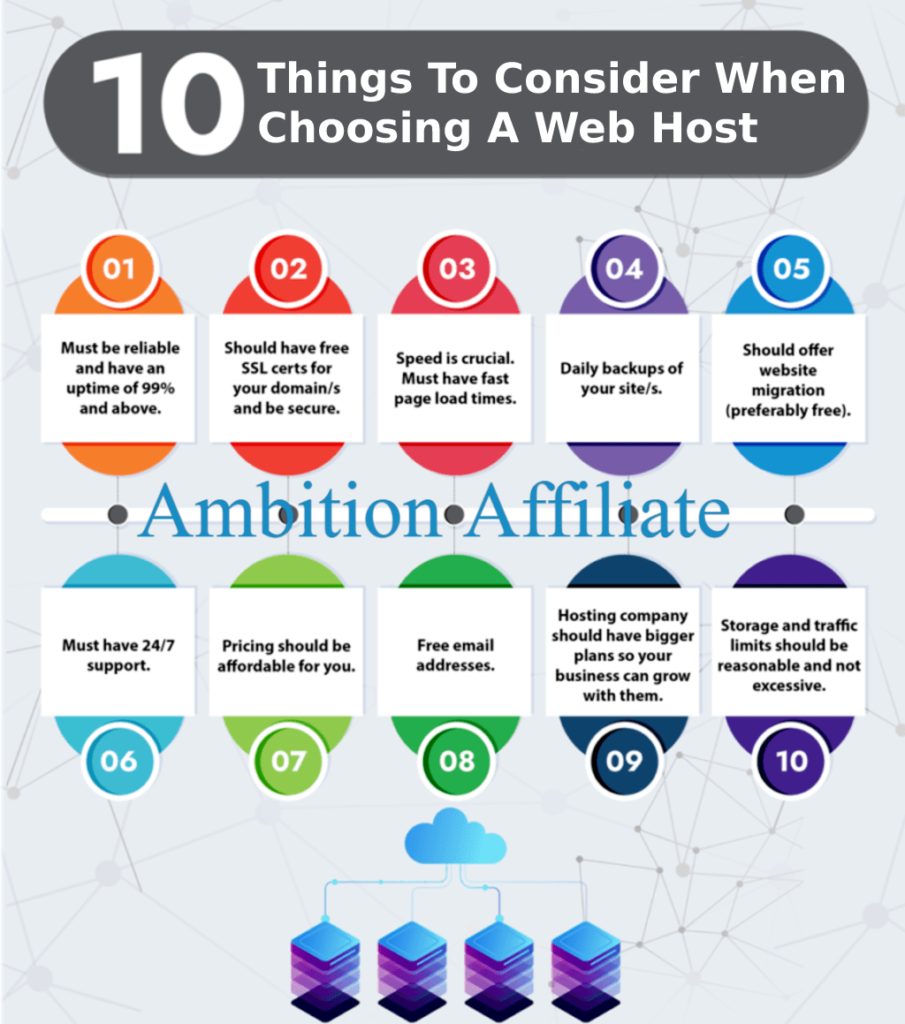If you are planning on building an online business, sooner or later you will need good web hosting. Unless you’re using an all-in-one solution like Shopify, you’ll need a place to host your website.
Because web hosting is such a profitable business model, there are tons of web hosting providers out there. Unfortunately, many of them are unreliable and offer very poor service.
Avoid “lifetime hosting” at all costs. First of all, you will never know whose lifetime you are talking about. Yours? The owner of the web hosting company?
Nobody really knows. This is not an area where you least want to pay and cut corners.
Oftentimes, poor web hosting service can cause your website to crash or load slowly. It can get hacked due to poor security or even go away overnight along with the web hosting provider. There are tons of horror stories out there when it comes to web hosting services.
So you should go for an established brand that thousands of other marketers use and swear by. Here are the 10 things to consider when choosing a web host:
Table of Contents
10 things to Consider When Choosing a Web Host
Must be reliable and have an uptime of 99% and above.
As a business owner, there is hardly anything worse than knowing that you are losing revenue because your website is down. When choosing a host, check their uptime record – the percentage of time you can expect your website to run smoothly – expect 99% or more. Some of the best hosting companies offer an uptime guarantee of 99.99% or more.
Should have free SSL certs for your domain/s and be secure.
Secure Sockets Layer (SSL) provides an extra layer of network security by encrypting traffic to and from your hosted website. Most, if not all, of the web hosting providers, support the use of SSL Certificates, albeit at an additional cost. What to look for is whether they support the free and open-source alternative, which is Let’s Encrypt SSL Certificates.
Note that using SSL requires your domain to have a dedicated IP address. Most entry-level shared hosting plans only offer a shared IP address rather than a dedicated one. Consequently, to use SSL, you may need a top-notch shared hosting plan.
Speed is crucial. Must have fast page load times.
If you already know a little about SEO, you know that Google always prioritizes the pages that load faster and always aims to give its users the best experience.
So, check that the website hosting service you are renting has a good loading speed. Keep in mind that this may seem like an insignificant difference in theory, but in practice, it is the difference between a user who continues to actively consume your content or is annoyed by the delay and leaves your page.
Daily backups of your site/s.
This is a very important function. Imagine what would happen if all of your web articles, posts, and other data were deleted as of a result of an accident. Most service providers try to make their systems highly reliable, but nobody plans accidents.
For example, you could accidentally delete content yourself. In any case, most good web hosting service providers offer a solid backup facility. You have to make sure yours does too. Ask your prospect about their disaster recovery plan.
Should offer website migration (preferably free).
Need help migrating from an existing web host? Many web hosts now offer a free, fully managed migration service, while others provide the software and you have to migrate yourself.
Must have 24/7 support.
24/7 customer service is what you should expect from a web hosting company. Sometimes you may need technical support from the provider. There are several ways to contact technical support: B. by e-mail, live chat, and telephone hotline. Providers who implement a ticket-based support system should be given preference. A ticket-based system allows you to better track the progress of your support affairs.
In addition to providing support through their technical support team, a web hosting provider should also offer customer self-help through their website. Look for vendor websites with knowledge bases, social media handles, blogs, and public forums.
Pricing should be affordable for you.
There are numerous service providers who offer similar services at different prices.
Of course, there are always many different factors that determine these variations in services, but there are still a number of different options you should consider before deciding which one to choose.
If you’re hosting a simple website and don’t anticipate a lot of concurrent traffic or bandwidth, it’s always best to go with the cheapest option. If you want to host a more complicated website, there are other features you should consider as well.
Free email addresses.
Some web hosts contain email and some do not. Email services also vary as some web hosts include a webmail client while others just route email to a different email client.
The hosting company should have bigger plans so your business can grow with them.
This is another important thing to consider with your hosting provider (and the plan you choose), whether or not it fits into your future plans. In other words, what you now think is reasonable hosting may not meet your needs in two years, once you start selling your goods online and getting good traffic to your site.
Every web-based company should keep an eye on growth. So if a hosting company is struggling to handle this growth, it could be a problem. Is there a VPS or dedicated server option with the host? Can they easily update your account?
Moving from one host to another takes valuable time and effort that could be avoided if the business can scale its solutions to grow.
Storage and traffic limits should be reasonable and not excessive.
Depending on the purpose of your website, the files you add may require a lot or little space. Regardless of your case, it is always recommended to hire the service that best suits your needs.
If you are in need of a lot of storage, make sure the website hosting company has the amount you need so you don’t run out of storage. Or, if you don’t need much, opt for cheaper tariffs and save money that you would pay for unnecessary space.
However, if your service has unlimited storage, then relax on that factor and move on to the next tip!
Some website hosting services have a monthly traffic limitation, which you may not be aware of. In practice, this means that the server charges an additional fee for “additional visitors” above a certain amount of access or stops displaying your website on the web.
So always pay attention to company information and use it with unlimited traffic so as not to run the risk of your website going down.
To Your Success.




